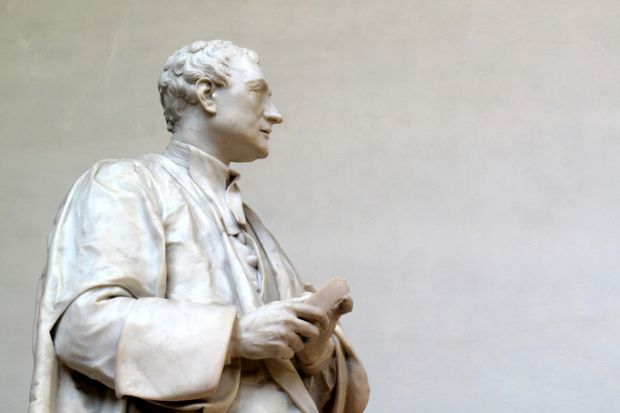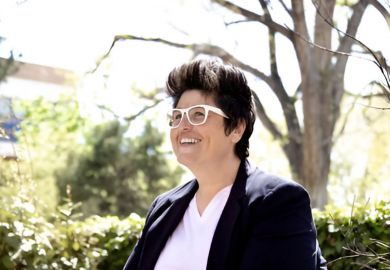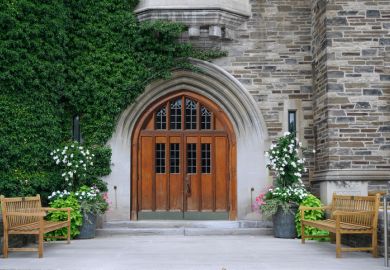The world is in crisis – several crises in fact. I have in mind not the Covid health crisis but crises that in some ways run even deeper: the climate disaster, egregious inequality, excessive instrumentalism, continuing signs of coloniality, a growing fear of strangers, and an inability to tolerate deep ambiguity.
For those in the academic world, the question naturally arises as to whether universities bear any responsibility for these phenomena. To the extent that they do, the values embedded in them can fairly be put in the dock.
The higher education scholars Philip Altbach and Jamil Salmi appear to see little culpability – at least as regards the “Western” university. In their recent article in Times Higher Education, they say that “it is essential to safeguard the fundamental values of the Western university model, dedicated to the search for truth based on scientific evidence and academic freedom”.
Questions immediately present themselves. Has the Western university model lived up to its own values? To what extent are its truths based on scientific evidence and academic freedom? What is special about science: what of disciplines that are dependent less on evidence but more on reason or pragmatic considerations? And why this insistence on the Western university? Might not universities in other regions harbour worthwhile values?
These questions point to a fundamental issue concerning the role of the Western university in the situation that confronts us. Altbach and Salmi speak of “the search for truth” and the scientific endeavour, but, as the Frankfurt School of Critical Theory observed back in the 1930s, the form of reason favoured in the West is instrumental reason, in which nature and the world have come to constitute resources for control by humanity. And it is this form of reason, accordingly, that has come to be favoured in the Western university.
In short, the Western university has been all too Western: too much believing in the value of objective knowledge in general, and too much taken up with scientific knowledge in particular. Moreover, this idea of the university has been much endorsed beyond the Western world, notably by China. And this set of dispositions is central to the global evolution that has brought us to our present predicament.
Of course, this is not the full story. On the contrary, the Western university contains resources for its own renewal. And many institutions are engaged in programmes of renewal that are, in part, sensitive to the critiques I have mentioned.
These inner resources arise from the value pluralism within universities. There is no single set of values that characterises the Western university except the value placed on there being a clash of values within single institutions. The Western university is an institution where conflicts and, indeed, contradictions between sets of values – and ideas – can be, and are, played out.
By extension, the Western university is extraordinary in another sense, in that it holds the capacity to critique itself. And this is a crucial capacity if the university is to turn itself around, which is a responsibility now falling upon it. After all, if the university can in part be held responsible for the crises befalling this planet, it has in turn a responsibility to play its part in mitigating those crises.
There is no reason to believe that this can’t be done. The Western university’s value base is not frozen but has continued to evolve, certainly over its recent 200-year evolution from an institution that saw its value resting on its internal knowledge callings to its central role in the formation of cognitive capitalism. Its further evolution has to place at its centre the planet and the plight of humanity.
There is one fly in the ointment, however. The present-day conflict of the faculties – to use Kant’s terminology – is not being fought on a level playing field. The dominant value framework is precisely that depicted by Altbach and Salmi: a commitment to the claims of science and its associated technologies to provide objective readings and manipulations of the world. Other value frameworks – implicit in indigenous knowledges, embodied knowledges (of the kind within professional life), feminist epistemologies, and knowledges of care and otherness (which are presuppositions of environmental action) – are certainly present and even gaining strength, but they are minor value frameworks within the university.
Can the playing field of values be levelled, such that the present minor value frameworks can better be heard and their hopes for this planet realised? The jury is out, but let’s hope it returns soon with a positive verdict.
Ronald Barnett is emeritus professor of higher education at the UCL Institute of Education. His latest book is The Philosophy of Higher Education: A Critical Introduction, just published by Routledge.
Register to continue
Why register?
- Registration is free and only takes a moment
- Once registered, you can read 3 articles a month
- Sign up for our newsletter
Subscribe
Or subscribe for unlimited access to:
- Unlimited access to news, views, insights & reviews
- Digital editions
- Digital access to THE’s university and college rankings analysis
Already registered or a current subscriber?








